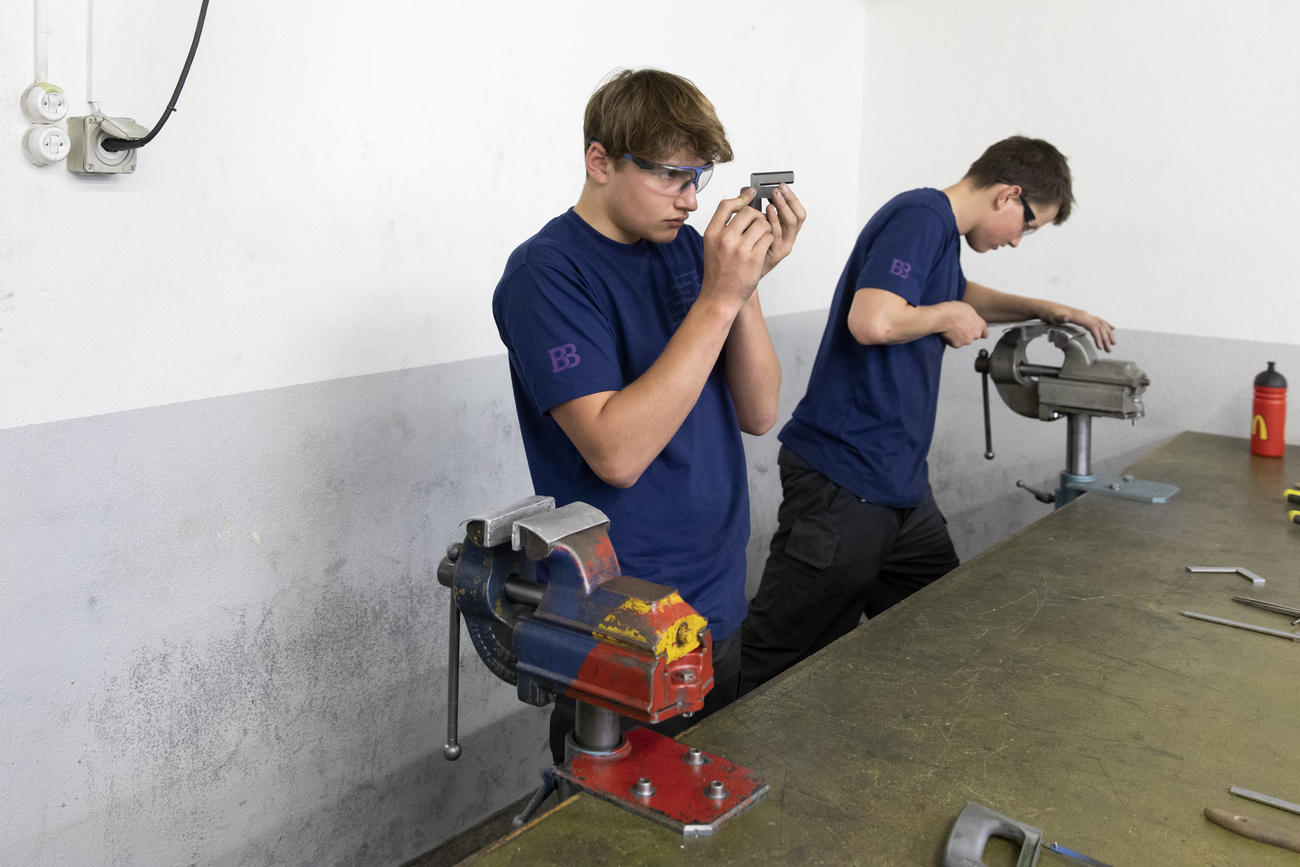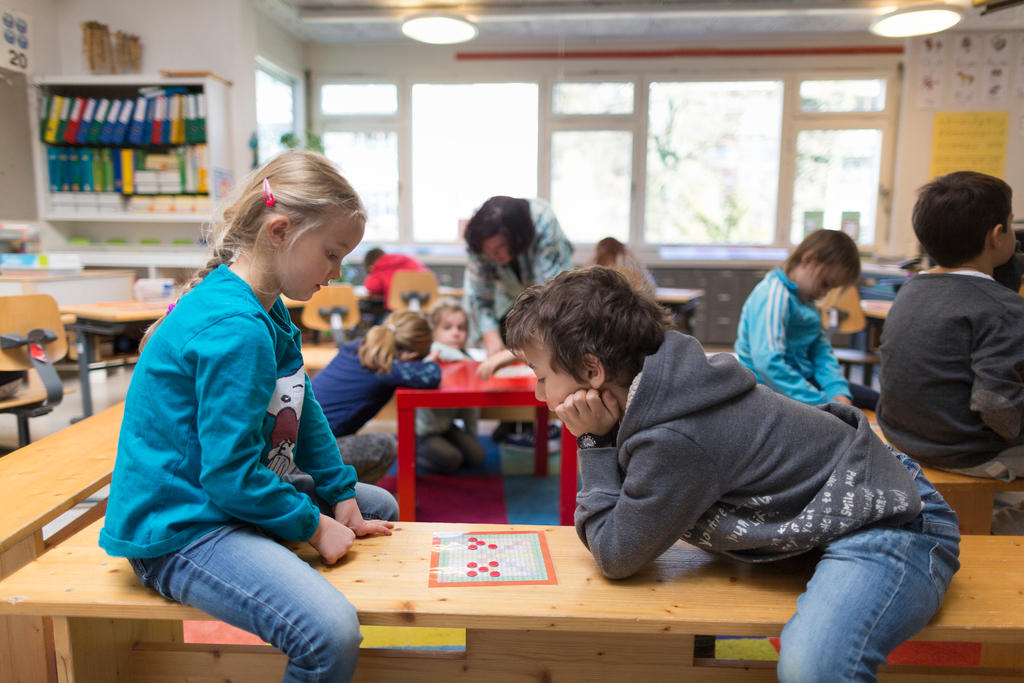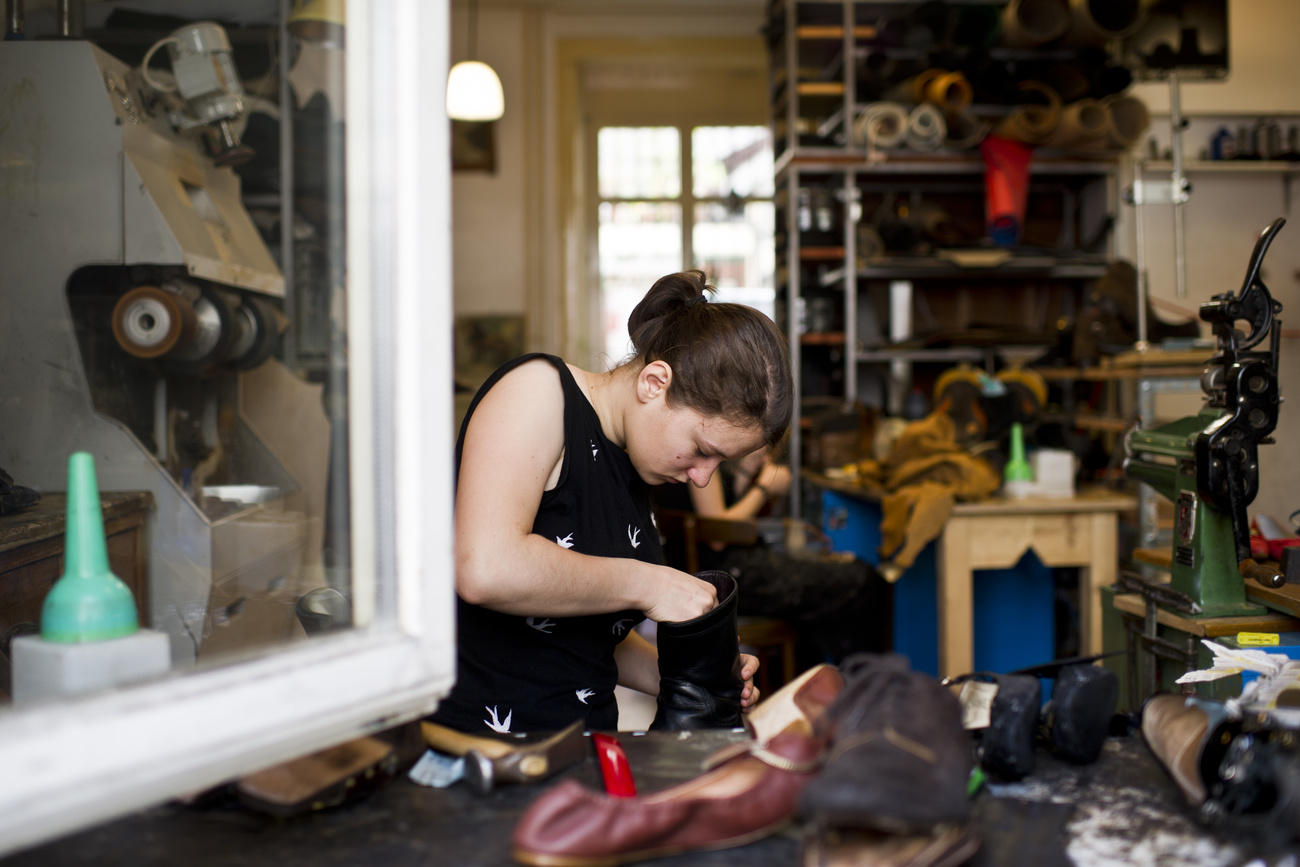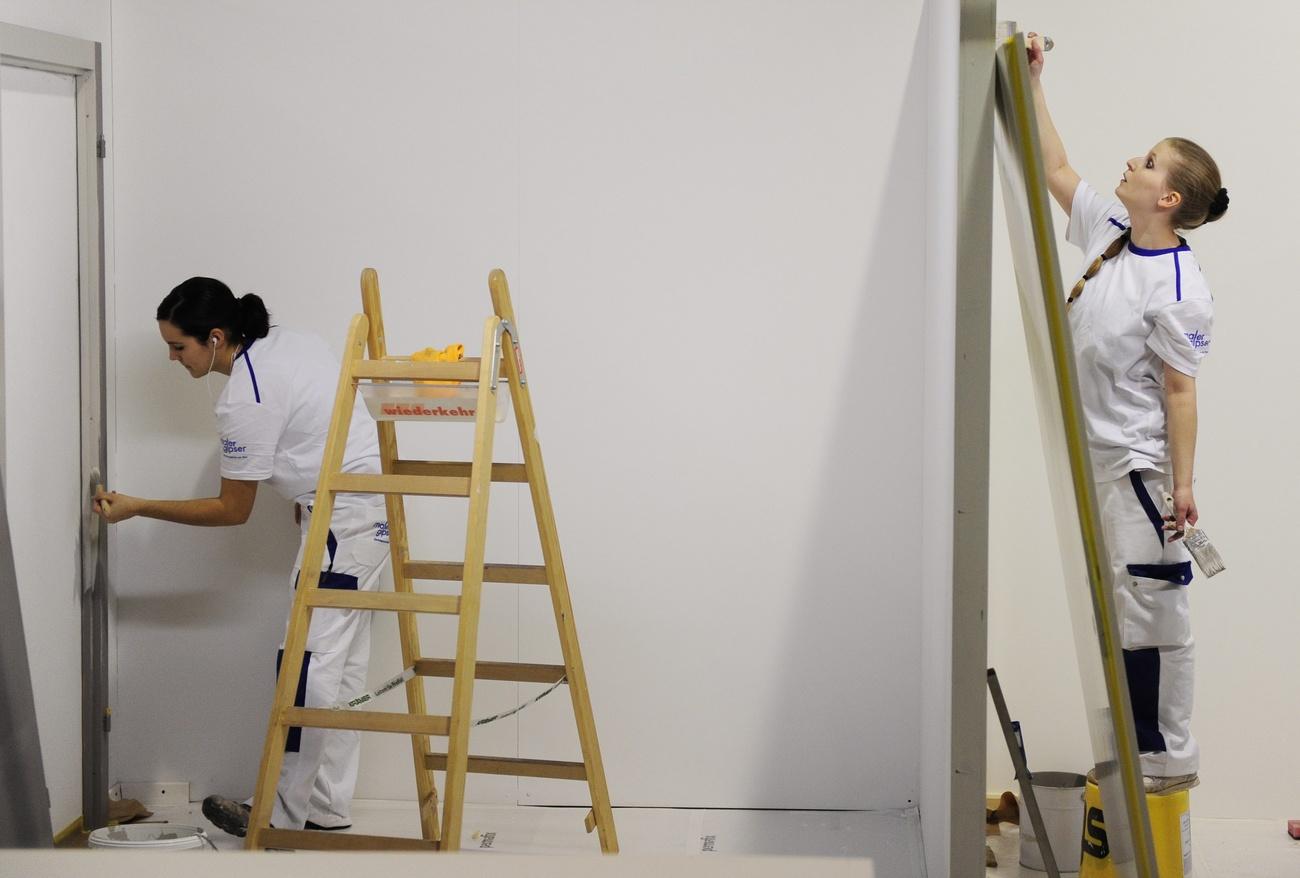Swiss teens have wider career aspirations than other Europeans

Young people in countries with strong apprenticeship systems - like Switzerland - generally aspire to a wider range of careers than those in nations without this tradition, an OECD study has found. But gender still plays a role.
The findings come from the “Dream Jobs? Teenagers’ Career Aspirations and the Future of Work”External link report, which was presented on Wednesday at the World Economic Forum (WEF) meeting in Davos.
It follows on from the Organisation for Economic Co-operation and Development (OECDExternal link)’s PISA assessment of the knowledge and skills of 15-year-olds around the world, the main results of which were released in December 2019.
+ The Swiss PISA results: behind on reading
The Dream Jobs report, based on questions asked during the PISA survey, found 15-year-olds’ career expectations had not changed much since the first PISA survey in the year 2000; in fact, they had mostly become more concentrated in fewer occupations.
Doctors, teachers
In 2018, “47% of 15-year-old boys and 53% of 15-year-old girls… said they expect to work in one of just ten jobs by the age of 30 – an increase of eight percentage points for boys and four percentage points for girls since the start of the century,” the report found.
New jobs barely made inroads. “Traditional 20th century and even 19th century occupations such as doctors, teachers, veterinarians, business managers, engineers and police officers continue to capture the imaginations of young people as they did nearly 20 years ago, before the era of social media and the acceleration of technologies such as artificial intelligence in the workplace,” the OECD said.
The OECD said that the growing concentration was driven by changes in the expectations of young people from more disadvantaged backgrounds and of the weaker PISA test performers.
Apprenticeship difference
However, countries with a strong tradition of apprenticeships for teenagers, like Switzerland – in which two thirds of school leavers opt for vocational training, which sees them combine on the job training with a couple of days per week in school – appear to somewhat buck the trend.
+ How the Swiss dual apprenticeship system is seen as a model for others
“In Switzerland, the career expectations of teenage boys are far less concentrated than the OECD average. The figure for girls is similar to the OECD average. Looking at the jobs aspired to, Swiss youth arguably have more realistic expectations than in comparable countries,” lead author Anthony Mann told swissinfo.ch in email comments.
“This is likely to reflect the strengths of both early career guidance and of vocational education and training (VET) in Switzerland. Launching this new PISA report in Davos is an opportunity to highlight the value of such employer engagement in education.”
In Germany and Switzerland, fewer than four in ten young people expressed an interest in just ten jobs.
Gender differences prevail
What was also striking, the report said, was that even when girls and boys performed similarly in the PISA tests, their career expectations differed “markedly”.
Among high performers in mathematics or science, for example, boys were much more likely than girls to express an interest in science or engineering jobs; girls opted for health-related careers.
In Switzerland, the debate is ongoing as to why so few girls are going into STEM (science, technology, engineering, mathematics) subjects, particularly as there is a skills shortage in this area.
+ Blog: My experience as a woman in science
Social background
The OECD data also showed that high achievers did not always aim to fulfil their potential. High-performing young people from disadvantaged backgrounds are four times less likely to have ambitious aspirations than their peers from the most privileged social backgrounds.
As expected, fewer Swiss youth than elsewhere anticipated going to university, Mann said. (Only 20% of young people go on to university studies in Switzerland, but this is also a reflection of the strength of VET, which allows for good careers without degrees).
But there was an issue with career aspirations overall. “Data also show a far higher proportion of high performing disadvantaged youth in Switzerland (around 50%) than elsewhere in the OECD (33%) do not expect to go into professional or managerial professions. Where occupational aspirations are a poor reflection of academic ability, there is potential for concern,” Mann said.

More
Disadvantaged students ‘falling behind’ in Switzerland

In compliance with the JTI standards
More: SWI swissinfo.ch certified by the Journalism Trust Initiative








You can find an overview of ongoing debates with our journalists here. Please join us!
If you want to start a conversation about a topic raised in this article or want to report factual errors, email us at english@swissinfo.ch.